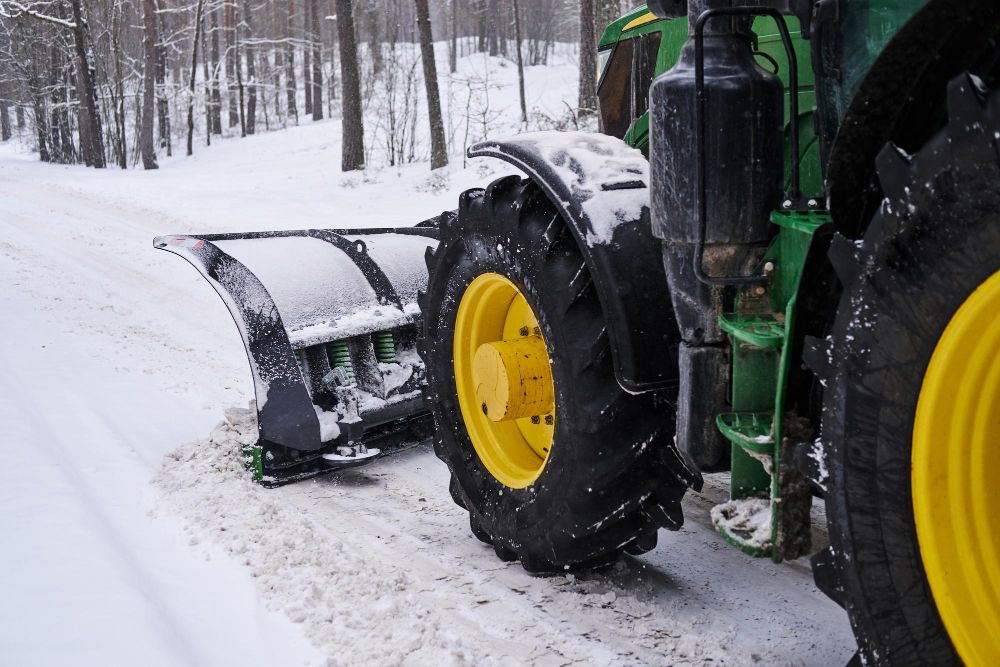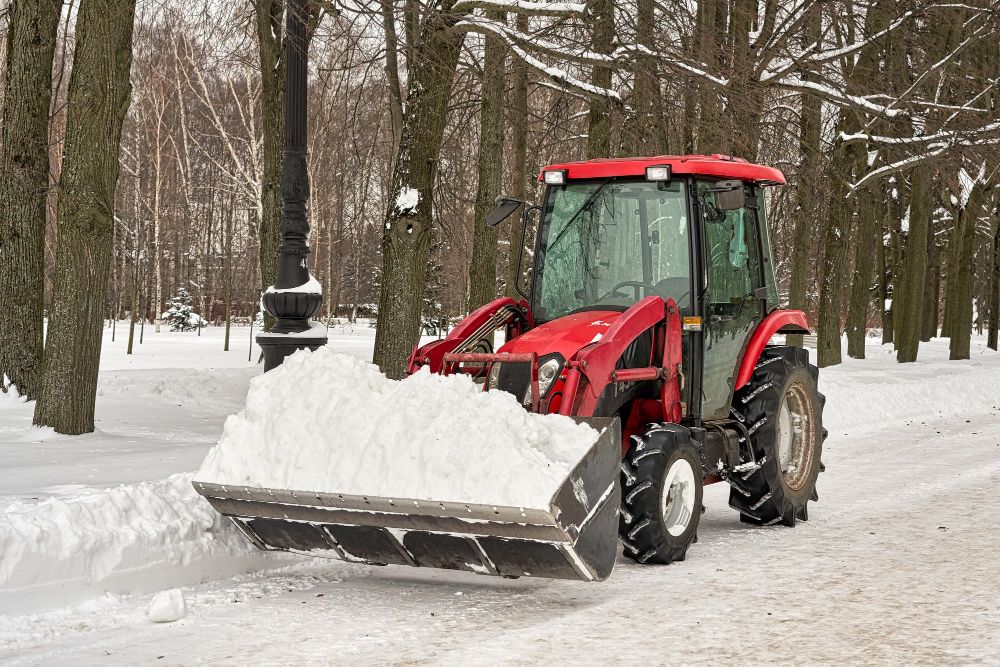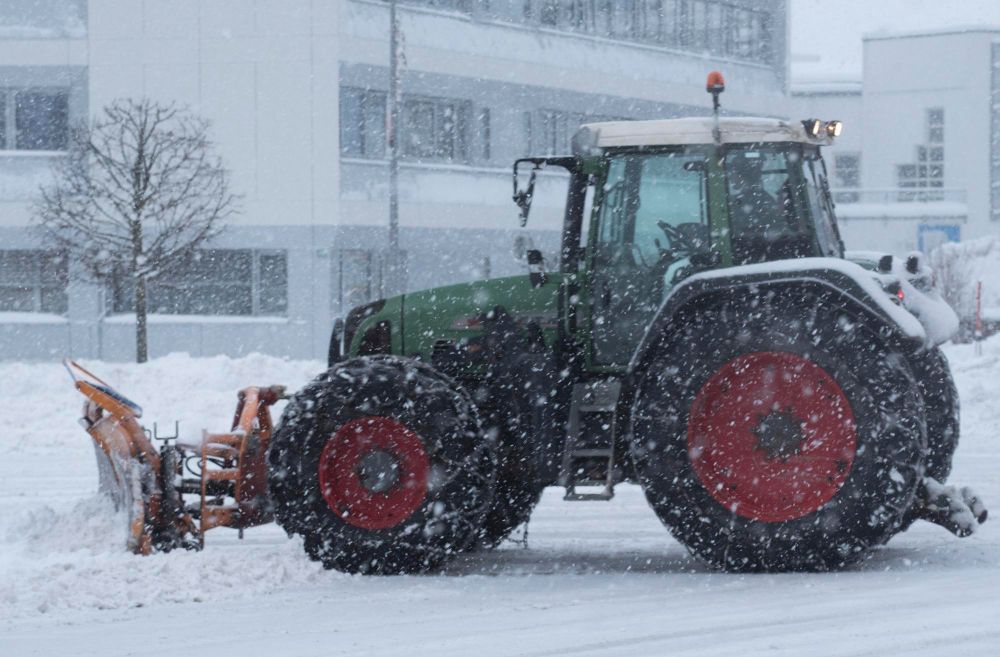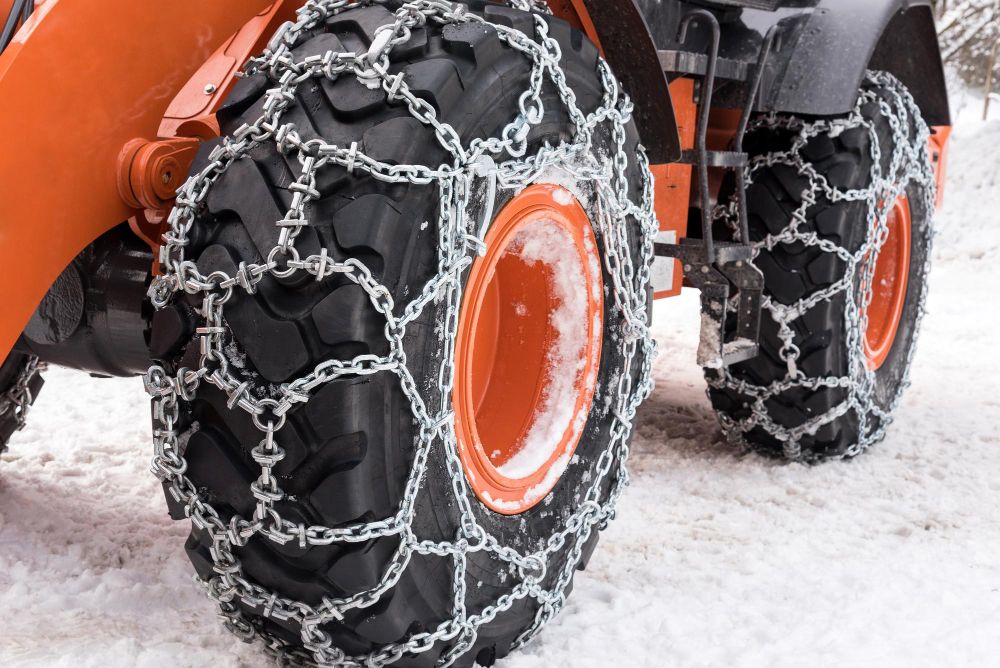
Winter service with a tractor: What you should bear in mind
What legal requirements should you always observe when carrying out winter maintenance?
Farming is usually quiet in winter - many farmers therefore like to use the free time and unused machines for winter service to clear and grit icy roads, snow-covered parking lots or blocked driveways. Local authorities as well as private individuals like to use this service. However, to ensure that everything runs smoothly, farmers and contractors should bear in mind that they comply with the legal requirements in Germany.
Which driving licenses do I need for winter service?
According to Section 6 (5) of the Driving License Ordinance, driving license categories L and T may only be used for agricultural and forestry purposes. Fortunately, in addition to traditional field work, winter road maintenance is also listed in this section. This means snow shoveling, clearing and salt spreading for municipalities, but companies and private individuals are also permitted in these classes.
However, the restriction regarding speed still applies: tractors that drive faster than 60 km/h may only be driven by persons with a category C/CE driving license, even in winter service.
Can I use tractors with a green license plate?
Whether a tractor with a green, tax-exempt license plate can be used for winter road maintenance actually depends on the client. If the municipality or local authority is the client, Section 3 (7e) of the German Motor Vehicle Tax Act (Kraftfahrzeugsteuergesetz - KraftStG) states that street cleaning is exempt from motor vehicle tax.
The situation is different when private individuals or companies are commissioned to clear roads: In this case, tractors need a black, non-exempt license plate. However, it is possible to keep the green license plate if the commercial use is only occasional. However, this use must be registered with the main customs office in advance. The vehicles are then taxed for the period of commercial use, but for at least one month.
Can winter road maintenance be considered road haulage?
As a rule, winter road clearance services do not constitute the transportation of goods by road, as gritting and pushing are work activities. However, there is one exception: if it involves the removal of snow or the transportation of grit (without distributing it), it may constitute the transportation of goods. If this is done for a fee, i.e. paid for by the client, a corresponding permit is required. If the transportation was agreed as part of the service and is carried out for the farmer's own account, it may be considered the transportation of goods.
Important to know: The legal requirements continue to apply to road haulage in winter service. This means that the driver requires a driver qualification certificate (“95 on the driver's license”). In addition, toll charges may apply under certain conditions.

Do I have to mark my tractors for winter service?
According to the law, vehicles must be marked for winter service. Farmers must pay particular attention to the following points:
- Equip the machines with at least one beacon with amber flashing light
- If the headlights are covered by the snow blade, an additional high-mounted headlight must be fitted. Only one pair of headlights may be in operation at any one time.
- If headlights are used on the tractor roof, the maximum speed is limited to 30 km/h
- Snow clearing equipment that protrudes laterally more than 40 cm beyond the outer edge of the tractor's marker and tail lights must be equipped with its own marker and tail lights and reflectors.
- If the tractor's lighting is obscured by the attachment, the lighting on the attachment must be repeated.

How wide can my tractor be for winter service?
As tractors often need to be equipped with wide tires for use in winter service, they may have a maximum width of 3 m for use on the road in accordance with the 35th exemption regulation StVZO. Incidentally, there are no legal requirements for the maximum dimensions of snow clearing equipment. Snow blades can therefore also be wider than 3 m.
Does my tractor need winter tires?
In principle, all vehicles in Germany must be fitted with winter tires if the weather conditions require it. However, there are exceptions to the rule: according to Section 2 (3a) of the StVO, tractors and other agricultural machinery are exempt from the winter tire requirement. The coarse-tread profile of tractor tires is usually sufficient for safe driving if the driving style is adapted. However, in the event of heavy snowfall or very rough terrain, it may be advisable to equip the tractor with special winter tires or, alternatively, snow chains.

Who is liable for damage caused during winter maintenance?
Farmers who want to offer winter services should check with their insurance company in advance: Do motor vehicle liability and public liability insurance cover winter services? If not, it makes sense to take out additional insurance. It also makes sense to clarify in advance with the client who is responsible for any damage that occurs. These agreements should be recorded in writing in case of an accident.
What needs to be considered in an emergency?
Snowstorms and other weather phenomena in winter occur time and again and can trigger a disaster. Quick and uncomplicated assistance is crucial in such cases. In many places, legal requirements are suspended in the event of a disaster. In this case, find out from the local authorities or the crisis team which legal requirements apply.